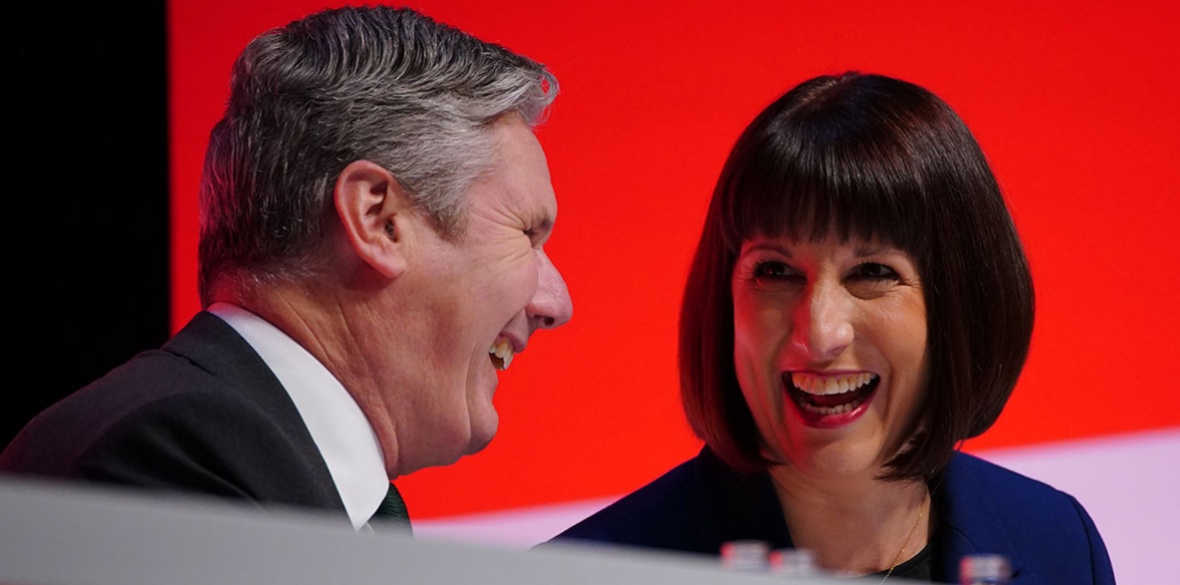This is the last article you can read this month
You can read more article this month
You can read more articles this month
Sorry your limit is up for this month
Reset on:
Please help support the Morning Star by subscribing here
LAST October shadow chancellor Rachel Reeves said that the Tories’ decision to lift the cap on bankers’ bonuses in the midst of a cost-of-living crisis “told us everything we need to know about this government.”
She was right. Likewise, her announcement that in government she will not reimpose the cap tells us all we need to know about the Labour Party today.
The speed of the U-turn is startling even by the standards of Keir Starmer’s leadership, which has already left the voting public utterly uncertain as to what, if anything, the party stands for any more.
This one is justified by the most preposterous rationales. A Labour spokesman said, “We are not in the business of telling business what to do about pay and conditions.”
Yet that was the main purpose for which the Labour Party was founded. And from the minimum wage to health and safety legislation to limitations on working hours its best moments have involved dictation to business.
Another banal argument is that the announcement offers the City “clarity” and “stability.” In fact, an announcement that the cap was to be reintroduced would have been just as clear.
Setting the spin aside, the substance of the policy is bad politics and bad economics.
Reeves’s politics are rotten because they signal a complete indifference to income inequality, of which bonuses for bankers have become the most egregious symbol, since they come on top of already stratospheric basic pay rates.
The real economy has still not recovered from the 2008 crash engineered by the banks. A generation of workers has not enjoyed a real pay rise.
To give the green light to a return to the most odious rewards for fat-cat greed only indicates that Labour prioritises the cupidity of the ruling class over the interests of working people.
Banking bonuses also represent the ultimate uncoupling of reward from contribution or achievement. The beneficiaries of the bonuses have hardly been distinguished by any performance metric other than generating profits for bank shareholders.
They are the epitome of social redundancy. By following past Labour governments in refusing to confront the power of the City, and the distortions it introduces into society, a Starmer administration is pre-announcing its own failure.
This is where the bad economics kicks in. The bonuses, tied to profit targets, encourage reckless behaviour, leading to an explosion of fictitious capital chasing paper profits through bogus instruments.
It has been argued that capping bonuses simply leads to higher base pay rates. That is of course undesirable — indeed, indefensible — but it does not incentivise a casino gambling mentality to the extent that having a big part of one’s income tied to short-term profit does.
So Reeves, who has been pledging undying devotion to the City and all its works, is setting up Britain’s economy for the next crash. While the 2008 disaster was rooted not in bonuses but in the prior over-accumulation of capital, the behaviour of greedy bankers certainly made it worse.
And the impact in Britain was all the greater because of the over-reliance on the finance sector relentlessly promoted by Gordon Brown over the preceding decade.
Despite knowing this history, Reeves has doomed herself to repeat it. As in its support for imperialist war, the Starmer leadership is already in opposition aping the very worst aspects of New Labour in office.
The question for the wider labour movement is whether it is prepared to follow the leadership of the Labour Party over the cliff. Workers demand better, and their organisations should shed any illusions that Starmer’s Labour is any longer making a pretence of listening.









